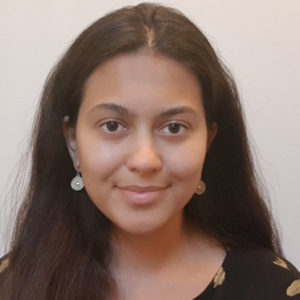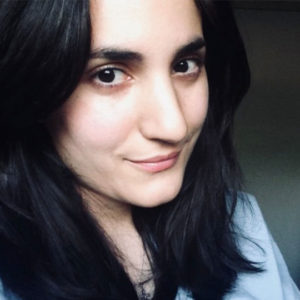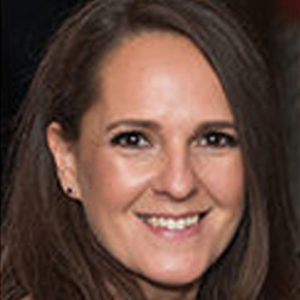Just over a year ago, while I was a fourth year medical student (SL), I was required to write a reflective essay entitled, “When a patient became a person.” This piece of work contrasted starkly with the “scientific,” evidence-based approach that I had grown accustomed to. I relished this opportunity to think holistically about a patient encounter. Committing my thoughts to paper allowed me to revisit clinical experiences, and to reflect on my personal and professional progress. I have found reflection particularly useful in patient encounters that are challenging or emotionally loaded. Reflecting on these situations has enabled me to learn from good practice I have observed and to be better equipped to communicate with and support patients. The Medical Schools Council and the General Medical Council recently released guidance on reflection specifically for medical students, emphasising the importance of reflective practice and suggesting ways for students to develop skills as “reflective practitioners”, both independently and through medical school assignments. [1]
At UCL Medical School (UCLMS) reflective writing forms part of the formative medical student portfolio. Students in their first clinical year submit two 1000-word reflective pieces as part of the clinical and professional practice (CPP) curriculum. This reflective work is marked and graded by trained tutors. Grading of our reflective essays has always stirred significant debate among my peers. There is also discussion about the emphasis on written work as the mainstay of reflection.
Much has been written on reflection, including by medical students and junior doctors. [2,3] As a medical student representative, I wanted to investigate my peers’ opinions regarding our reflective writing assignments. I therefore compiled an anonymous, voluntary questionnaire, which I and other student representatives distributed to students who had completed these assignments. Students were asked to rate their views on reflective writing, its grading and to suggest possible changes.
Through this questionnaire I learned that views on reflective writing were polarised. Many students valued reflective writing, acknowledging reflection to be a key skill in becoming a doctor. Many of my peers also appreciated grading of reflective work and found it gratifying to receive a high grade for their assignments. Bespoke feedback from tutors was largely well received and deemed to be valuable. I personally found receiving tailored support and guidance from a senior on subjects that can be sensitive or difficult to communicate to be a real strength of the curriculum.
However, many of us also feel that reflection is personal, subjective and does not lend itself to grading. Receiving a low grade can be demoralising and can imply that the student has reflected “incorrectly,” which many students find inappropriate. I can also see how fulfilling specific grading criteria may encourage contrived writing at the expense of genuine reflection.
When students were asked to comment on possible changes to reflective writing, some suggested greater standardisation of marking and feedback, while others proposed removing set titles or the grading system altogether. Some expressed anxiety about the confidentiality of written reflection in the wake of the Bawa-Garba case, in which the contents of a junior doctor’s reflective portfolio may have “fed into” court proceedings. [4] There were also comments about alternative methods for reflection, with many preferring face to face or verbal reflection.
Some students like myself, had participated in Balint groups or Schwartz Rounds, both of which are confidential formats for group discussion and reflection around clinical experiences. [5,6] Poetry, music and art were also suggested as formats for reflection. These are all important creative outlets, but may not be practical for medical school reflective practice. In addition, they may not provide the same function or the same benefits as written reflection. Reflective writing requires deliberate, considered thought around an experience, to allow for learning and potential changes to future practice; other media for reflection may not deliver this.
When I reported these findings to faculty (FG, JY), it resulted in a change to the reflective curriculum. A more detailed online guide to reflective writing for students has been introduced outlining the purpose of reflective practice, relevance to our future careers, different reflective opportunities available within our curriculum and useful models for reflection. In addition, welcome tips on composing the assignment have been provided. Additional essay titles, some suggested by the student body, have been included to widen the choices available. It was gratifying to see these changes implemented.
As someone who has participated in reflective practice at every opportunity during my undergraduate career, being able to co-create and contribute to the reflective curriculum has been invaluable. I appreciate the difficulties in incorporating reflective, unexamined aspects into a full medical education, and feel fortunate to be part of a medical school which can be responsive to the needs of its students.
 Sophia Lalani is a final-year medical student at UCL Medical School.
Sophia Lalani is a final-year medical student at UCL Medical School.
Competing interests: None declared

Jenan Younis is a Colorectal Surgeon and Clinical Teaching Fellow at UCL Medical School
Competing interests: None declared

Faye Gishen is a consultant physician and the associate head of the MBBS at UCL Medical School.
Competing interests: None declared
References:
- General Medical Council. The reflective practitioner – a guide for medical students. 2019. https://www.gmc-uk.org/education/standards-guidance-and-curricula/guidance/reflective-practice/the-reflective-practitioner—a-guide-for-medical-students (accessed 3 September 2019)
- Macaulay CP, Winyard PJW. Reflection: tick box exercise or learning for all?. BMJ. 2012;345:e7468.
- Furmedge D. Written Reflection is Dead in the Water. BMJ. 2016;353:i3250.
- Dyer C, Cohen D. How should doctors use e-portfolios in the wake of the Bawa-Garba case? BMJ. 2018;360:k572.
- Roberts M. Balint groups: A tool for personal and professional resilience. Can Fam Physician. 2012;58(3):245-7.
- Gishen F, Whitman S, Gill D, Barker R, Walker S. Schwartz Centre Rounds: a new initiative in the undergraduate curriculum—what do medical students think?. BMC Med Educ. 2016, 16:246 https://doi.org/10.1186/s12909-016-0762-6
